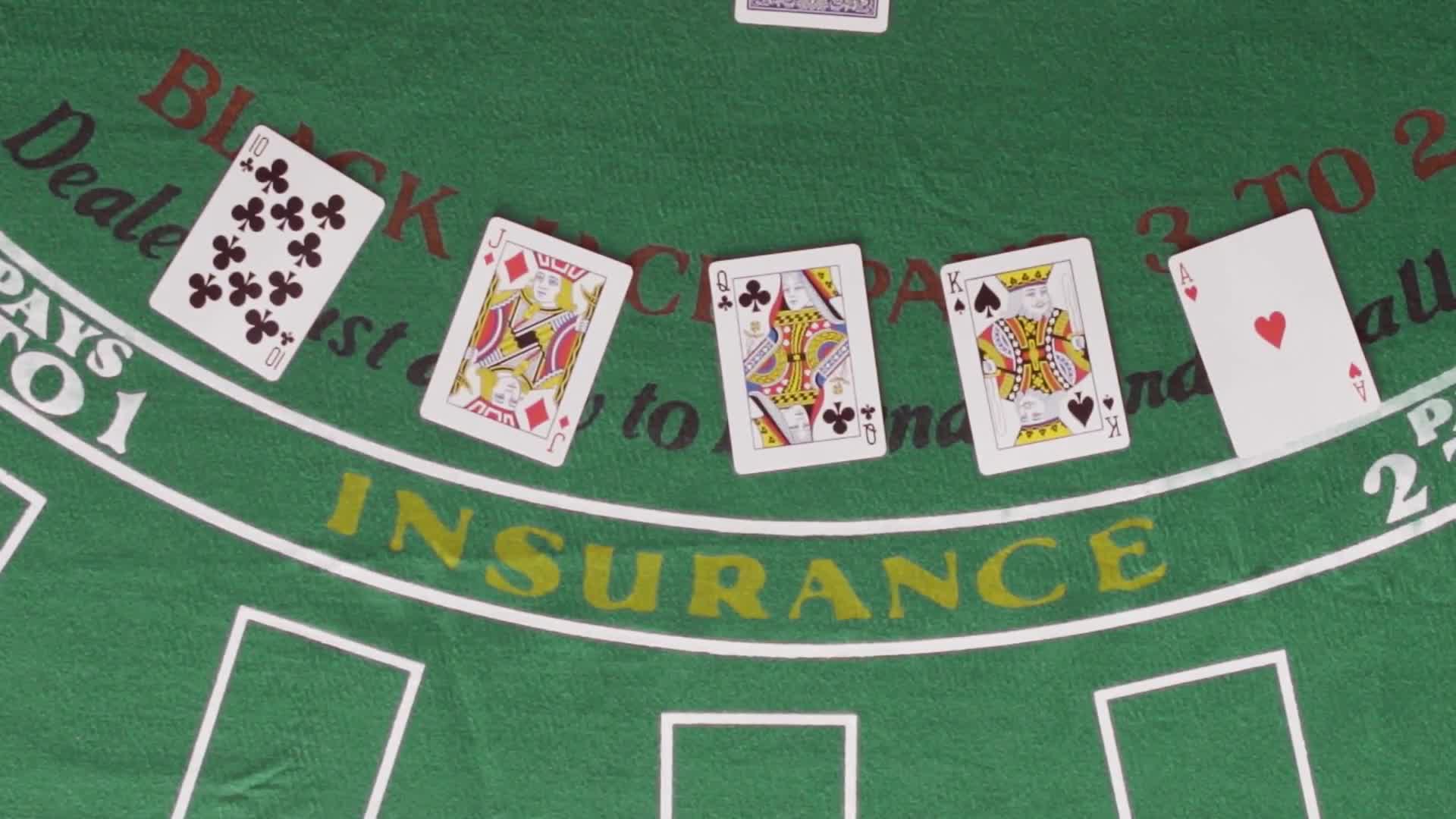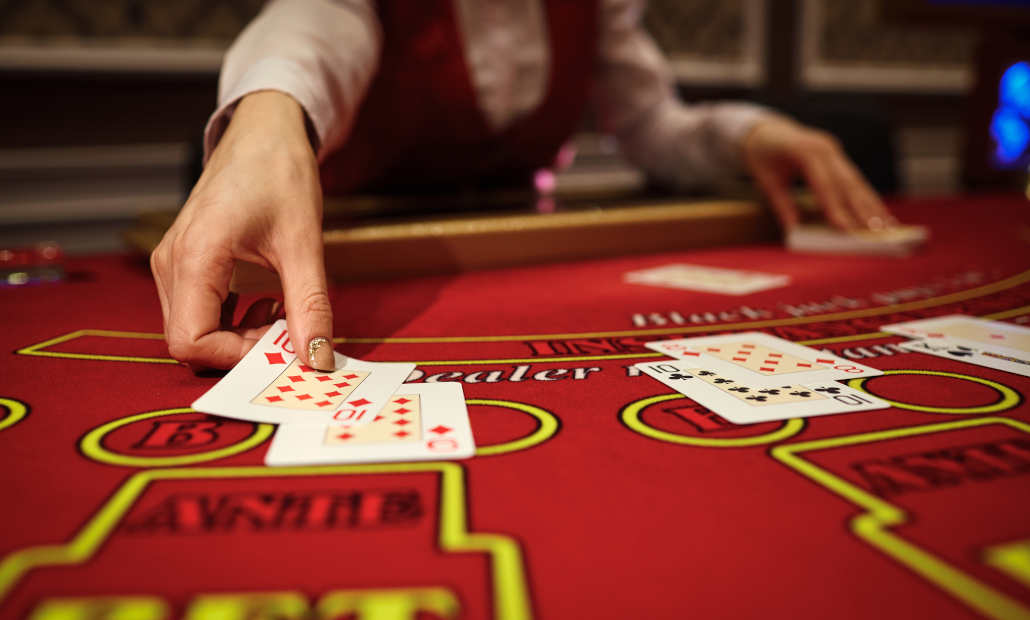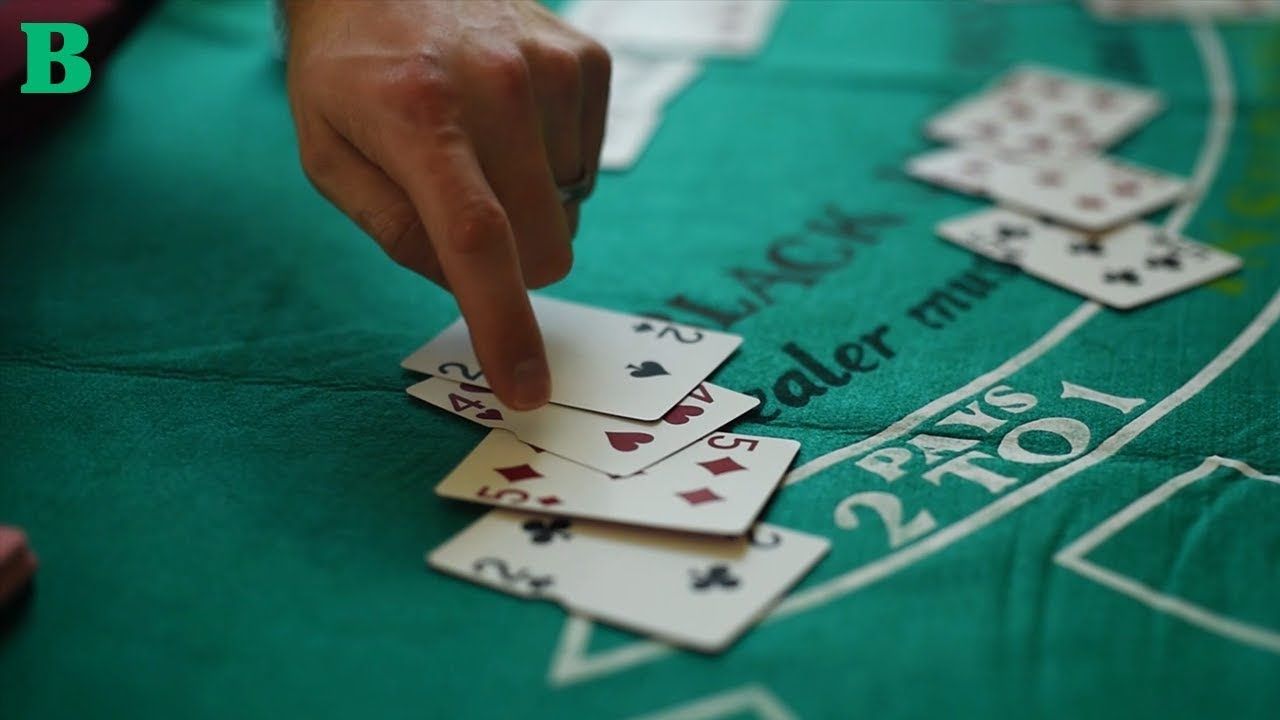Introduction
How Does Casino Know You’re Counting Cards: In the thrilling world of casino gambling, card counting is a legendary strategy used by some players to gain an advantage in games like blackjack. By tracking the ratio of high-value to low-value cards in the deck, card counters can adjust their bets and make more informed decisions, potentially tilting the odds in their favor. However, casinos have developed sophisticated methods to detect card counting and protect their interests.
The art of card counting is not illegal, but it is frowned upon by casinos, as it undermines their profitability in games where the house edge is already established. To thwart card counters and maintain their edge, casinos employ a combination of surveillance technology, trained personnel, and advanced data analysis.
This article delves into the intricate world of how casinos detect card counters and safeguard their revenue. From powerful surveillance systems monitoring every move at the gaming tables to the astute observations of pit bosses and floor supervisors, casinos have an arsenal of tools at their disposal. Additionally, technological advancements allow casinos to analyze player behavior, spot suspicious patterns, and maintain databases of known card counters.
Understanding how casinos identify card counting can help players appreciate the challenges and risks involved in using this strategy. So, whether you’re an aspiring advantage player or a curious enthusiast, delving into the methods casinos employ to uncover card counting reveals the intricate dance between players and establishments in the thrilling realm of casino gaming.

How do casinos know if you card count?
Many casinos recruit known counters to catch other counters. Using security cameras, plain-clothed security patrols and a host of other techniques, the security team observes the blackjack tables to monitor players’ betting patterns and behavior to assess whether they are counting cards.
Casinos use various methods and technologies to detect if a player is card counting in games like blackjack. Card counting is a strategy used to track the ratio of high-value cards to low-value cards remaining in the deck, which can give the player an advantage by adjusting their bets accordingly.
1. Surveillance Cameras: Casinos have extensive surveillance camera systems that monitor all areas, including the gaming tables. These cameras capture every move and behavior of players, allowing casino staff to review footage and identify suspicious patterns.
2. Pit Bosses and Floor Supervisors: The casino’s pit bosses and floor supervisors are trained to observe players and their betting patterns. They look for consistent changes in bet sizes, increased bets after favorable cards have been dealt, or deviations from typical betting behavior.
3. Software Analysis: Some casinos use advanced software to analyze the data from surveillance cameras and track player behavior in real-time. The software can flag unusual betting patterns that may indicate card counting.
4. Player Database and Watchlists: Casinos maintain databases of known card counters and advantage players. When suspicious behavior is detected, a player may be added to a watchlist and closely monitored during subsequent visits.
5. Backroom Review: If a player is suspected of card counting, they may be invited to a private room for further observation and questioning by casino personnel.
If a player is confirmed to be card counting, the casino may take actions ranging from warning or excluding the player from specific games to banning them from the casino entirely. It’s important to note that card counting is not illegal, but casinos have the right to refuse service to players they believe are gaining an advantage through such strategies.
What happens if a casino thinks you’re counting cards?
Card counting is not illegal. This means that many nonchalantly try it, thinking the worst that will happen is a telling off. This is not the case. If you’re caught card counting at a casino, you’ll be ejected from the premises immediately.
If a casino suspects that a player is counting cards, they will take various actions to mitigate the player’s advantage and protect their profitability. These actions can range from subtle countermeasures to more severe measures:
1. Increased Surveillance: Once suspicions arise, the casino will intensify surveillance on the player in question. Pit bosses, floor supervisors, and security personnel will closely monitor the player’s betting patterns and behavior.
2. Limiting Betting: The casino may limit the player’s betting range, preventing them from making larger bets when the count is in their favor.
3. Shuffle Sooner: To disrupt card counters’ advantage, the casino might shuffle the cards more frequently, reducing the effectiveness of counting strategies.
4. Escort to Another Table: The player may be asked to switch to a different table, making it harder for them to continue counting in the new environment.
5. Request to Leave: In some cases, the casino may simply ask the suspected card counter to leave the premises, exercising their right to refuse service.
Will a casino kick you out for counting cards?
Casinos mostly will not kick you out for card counting, unless you are a well known counter, like a Hyland count team member, or have previously been warned. You WILL be politely told that 21 games are no longer an option for you to play. A giant fallacy is that you need to be a mathematician to count cards.
Yes, in many cases, a casino may kick out or ban a player if they are suspected of counting cards in games like blackjack. While card counting itself is not illegal, casinos view it as a strategy that gives players an advantage over the house, which goes against their business interests.
When a casino believes that a player is counting cards, they may take several actions:
1. Verbal Warning: In some instances, the casino may issue a verbal warning to the player, informing them that their behavior is being closely monitored.
2. Limiting Betting: The casino may impose betting restrictions on the suspected card counter, limiting the amount they can bet to minimize potential losses.
3. Asking to Leave: If suspicions persist or the player’s advantage is evident, the casino may ask the player to leave the premises.
4. Trespassing Order: In more severe cases, the casino may issue a formal trespassing order, banning the player from entering the casino property in the future.
It’s important to note that while some casinos may tolerate card counting to a certain extent, especially if the player’s advantage is small, others are less lenient and may swiftly take action against suspected card counters. Additionally, if a player is banned from one casino due to card counting, they might face increased scrutiny and potential bans at other affiliated casinos as well.
Due to these potential consequences, players who employ card counting as a strategy should be aware of the risks involved and exercise caution when using this method in casinos that have a reputation for being intolerant of advantage play.

How do casinos avoid card counting?
Countermeasures used to prevent card counters from profiting at blackjack include: Decreasing penetration, the number of cards dealt before a shuffle. This reduces the advantage of card counting. Banning known counters from playing blackjack, all games, or entering casino property (trespassing).
Casinos employ various countermeasures to avoid or minimize the impact of card counting by players in games like blackjack. While card counting itself is not illegal, casinos view it as a strategy that gives players an advantage over the house, affecting their profitability. Here are some ways casinos avoid card counting:
1. Continuous Shuffling Machines (CSMs): Some casinos use CSMs in blackjack games, which automatically shuffle the cards after each round. This makes it impossible for players to track the count effectively.
2. Frequent Deck Changes: Even in games without CSMs, casinos may change decks more frequently to disrupt card counters’ ability to keep track of the count.
3. Shuffling Techniques: Dealers are trained to use various shuffling techniques to prevent predictable sequences of cards and make it harder for card counters to gain an advantage.
4. Limiting Bet Spreads: Casinos may impose betting restrictions, limiting the difference between a player’s minimum and maximum bets. Smaller bet spreads reduce the impact of card counting.
5. Back-Offs and Banning: If a player is suspected of card counting, the casino may ask them to stop playing certain games or leave the premises altogether.
Why do casinos track your players card?
Since the card contains an identifier, it notifies the casino host of your location and how much you are betting, winning, or losing. It even details how quickly you use the slot machines. This is how casinos control you. Remember that the cards are also linked to your choice of food and beverage.
Casinos track players’ cards for several reasons, primarily to enhance customer loyalty, improve marketing strategies, and gather valuable data for optimizing their operations. Player tracking systems, often known as players’ clubs or loyalty programs, offer various benefits to both the casino and the players:
1. Customer Loyalty and Rewards: By tracking players’ activities and spending, casinos can offer personalized rewards, incentives, and special promotions to encourage repeat visits and foster customer loyalty. These rewards may include free play, complimentary meals, hotel stays, show tickets, or other exclusive perks.
2. Data Collection and Analysis: Player tracking systems gather valuable data on players’ preferences, playing habits, and spending patterns. Casinos analyze this data to gain insights into their customers’ behavior, which helps them refine marketing strategies and tailor their offerings to better suit their target audience.
3. Targeted Marketing: Armed with the information collected through player tracking, casinos can send targeted marketing offers to specific groups of players based on their preferences and past activities. This improves the effectiveness of marketing campaigns and ensures that players receive promotions that are relevant to their interests.
4. Operational Optimization: By tracking players’ activities, casinos can optimize their floor layouts, game offerings, and staffing levels to maximize revenue and provide a better overall gaming experience.
5. Risk Management: Player tracking systems can also assist in identifying potential problem gamblers, allowing the casino to intervene and provide appropriate support or resources.
How much money does a casino take in a day?
When divided by 364, the daily revenue for the “Average Big Strip Casino” in 2020 was $35 million with $12 million of gaming earnings. In 2019, the same figures were $48 million and $16.5 million per day respectively.
The amount of money a casino takes in a day can vary significantly depending on the size of the casino, its location, the variety of games offered, and the level of customer traffic. Large, well-established casinos in popular tourist destinations tend to generate more revenue compared to smaller or local casinos.
Some of the world’s largest and most renowned casinos, located in places like Las Vegas and Macau, can generate hundreds of thousands to millions of dollars in revenue daily. These establishments have vast gaming floors with a wide selection of table games, slot machines, and other gambling options, attracting thousands of visitors each day.
On the other hand, smaller casinos or those located in less popular areas might see lower daily revenue, ranging from tens of thousands to a few hundred thousand dollars.
It’s essential to note that a casino’s daily revenue is not equivalent to its profit. Revenue represents the total amount of money wagered by players, and the casino’s profit is the revenue minus operating costs, which include expenses for staff, utilities, marketing, and other operational aspects.
To get an accurate figure of how much money a specific casino takes in a day, one would need access to the casino’s financial reports, which are typically not publicly disclosed. Additionally, revenue can fluctuate significantly from day to day based on factors like special events, holidays, or seasonal variations in tourist numbers.
Can you do card counting online?
Card counting online is extremely difficult, thanks to the use of RNGs which randomly reshuffle the deck after each turn. You’ll be far more successful playing at a land casino with a real-life dealer and physical deck of cards.
Card counting is a strategy that can be applied in land-based casinos where blackjack is played with physical decks of cards. However, card counting is not effective in online casinos that use Random Number Generators (RNGs) to determine card outcomes for virtual blackjack games.
In online blackjack games, the deck is essentially reshuffled after every hand. Since the RNG constantly generates new card combinations, there is no physical deck to keep track of, making card counting futile. This process ensures the randomness and fairness of each hand and eliminates any advantage a player might gain from card counting.
Moreover, online casinos employ sophisticated anti-fraud and anti-cheating measures to detect and prevent any attempts to exploit their systems. They regularly audit their software and use advanced encryption technologies to safeguard the integrity of their games.
While card counting is not applicable to online blackjack, players can still use basic blackjack strategy to improve their odds of winning. Basic strategy involves making decisions based on the player’s hand and the dealer’s face-up card, helping players make statistically optimal choices in each situation.
Overall, online blackjack is designed to be fair and random, providing a level playing field for all players without the opportunity for card counting or other advantage play strategies.
How do casinos pay winners?
Casinos tend to pay winnings of less than $25,000 with cash or check. Larger winnings may be paid as a lump sum or periodically as an annuity. Some casinos don’t give gamblers an option for how winnings are paid.
Casinos pay winners through various methods, providing options for players to receive their winnings conveniently and securely. The payment methods available can vary depending on the casino and the player’s location. Here are some common ways that casinos pay out winnings:
1. Cash: For smaller winnings or in land-based casinos, players may receive their winnings in cash directly from the casino cashier.
2. Casino Chips: In land-based casinos, players can often choose to receive their winnings in casino chips, which can be easily used for further gambling or redeemed for cash later.
3. Check: Casinos may issue a check or a bank draft to winners, especially for larger sums. Players can then deposit the check into their bank account to access their winnings.
4. Wire Transfer: Some casinos offer wire transfer options, where the winnings are directly transferred to the player’s bank account electronically.
5. E-Wallets: E-wallets like PayPal, Skrill, or Neteller are popular payment options in online casinos. Players can withdraw their winnings to their e-wallet accounts and then transfer the funds to their bank accounts.

Conclusion
The casino’s ability to detect card counting is a testament to the sophisticated methods and technologies they employ to protect their bottom line. While card counting is not illegal, casinos view it as an advantage play strategy that challenges their established house edge. As such, they have developed a multi-faceted approach to identifying card counters and thwarting their advantage.
Through a combination of surveillance cameras capturing every move at the gaming tables, the sharp eyes of pit bosses and floor supervisors, and the use of advanced software for data analysis, casinos can spot suspicious betting patterns and behaviors associated with card counting. Additionally, the creation of player databases helps identify known card counters and apply stricter measures to deter their advantage play.
Casinos also take proactive measures like using Continuous Shuffling Machines (CSMs) or frequent deck changes in online casinos to prevent card counting altogether.
While card counting can provide an advantage in land-based casinos with physical decks, online casinos rely on Random Number Generators (RNGs) that reshuffle decks after each hand, making card counting ineffective.
Ultimately, players should recognize that while card counting may be a valid strategy in some contexts, casinos are vigilant in protecting their interests. For players who attempt card counting, it’s essential to exercise caution, understand the risks involved, and be prepared for potential consequences, including being asked to leave the premises or being banned from certain games or casinos. As the intricate dance between players and casinos continues, the pursuit of gaming enjoyment and fair play remains a delicate balance in the world of casino gaming.










